The safest way is to split the string in parts and put it together using the DateSerial and TimeSerial method.
Option Explicit
Public Sub example()
Range("A1").Value = ConvertISO8601StringToDate("2020-10-06T16:19:00")
Range("A1").NumberFormat = "m/d/yyyy h:mm"
End Sub
Public Function ConvertISO8601StringToDate(ByVal InputString As String) As Date
Dim DatePart As Date
DatePart = DateSerial(Left$(InputString, 4), Mid$(InputString, 6, 2), Mid$(InputString, 9, 2))
Dim TimePart As Date
TimePart = TimeSerial(Mid$(InputString, 12, 2), Mid$(InputString, 15, 2), Mid$(InputString, 18, 2))
ConvertISO8601StringToDate = DatePart + TimePart
End Function
To convert an entire range use arrays for fast processing:
Public Sub ConvertRange()
Dim RangeToConvert As Range ' define range
Set RangeToConvert = ThisWorkbook.Worksheets("Sheet1").Range("A1:A13")
Dim DataArray() As Variant ' convert range into array for fast processing
DataArray = RangeToConvert.Value
' loop throug array data
Dim iRow As Long
For iRow = LBound(DataArray, 1) To UBound(DataArray, 1)
Dim iCol As Long
For iCol = LBound(DataArray, 2) To UBound(DataArray, 2)
' convert iso8601 conform strings and leave the rest unchanged
Dim DateVal As Date
On Error Resume Next
DateVal = ConvertISO8601StringToDate(DataArray(iRow, iCol))
If Err.Number = 0 Then ' only convert iso8601 strings
DataArray(iRow, iCol) = DateVal
End If
On Error GoTo 0
Next iCol
Next iRow
' write array data back to sheet
RangeToConvert.Value = DataArray
End Sub
More powerful function with RegEx that can convert all the ISO8601 defined formats:

The output of the timezoned times is converted UTC+00:00. So if that needs to be in any other zone it needs to be converted after that. For example into the comuters timezone.
For dates that have no day specified like YYYY, YYYY-MM or YYYY-Www always the first day of that period is asumed. So for example 2004-W28 gives the beginning of that week as date 2004-07-05 to get the end of that week you just need to add +6 to the beginning. Also 2004-07 will assume the beginning of the month 2004-07-01. And the year 2004 will be converted to the date 2004-01-01.
Public Function ConvDateTime(ByVal InVal As String) As Date
Dim SplitDateTime() As String
SplitDateTime = Split(InVal, "T")
ConvDateTime = ConvDate(SplitDateTime(0)) + ConvTime(SplitDateTime(1))
End Function
Public Function ConvDate(ByVal InVal As String) As Date
Dim RetVal As Variant
Dim RegEx As Object
Set RegEx = CreateObject("VBScript.RegExp")
With RegEx
.Global = True
.MultiLine = True
.IgnoreCase = False
End With
RegEx.Pattern = "^(\d{4})-?(\d{2})?-?(\d{2})?$|^(\d{4})-?W(\d{2})?-?(\d)?$|^(\d{4})-?(\d{3})$"
Dim Match As Object
Set Match = RegEx.Execute(InVal)
If Match.Count <> 1 Then Exit Function
With Match(0)
If Not IsEmpty(.SubMatches(0)) Then
'YYYY-MM-DD
If IsEmpty(.SubMatches(1)) Then 'YYYY
RetVal = DateSerial(CInt(.SubMatches(0)), 1, 1)
ElseIf IsEmpty(.SubMatches(2)) Then 'YYYY-MM
RetVal = DateSerial(CInt(.SubMatches(0)), CInt(.SubMatches(1)), 1)
Else 'YYYY-MM-DD
RetVal = DateSerial(CInt(.SubMatches(0)), CInt(.SubMatches(1)), CInt(.SubMatches(2)))
End If
ElseIf Not IsEmpty(.SubMatches(3)) Then
'YYYY-Www-D
RetVal = DateSerial(CInt(.SubMatches(3)), 1, 4) '4th of jan is always week 1
RetVal = RetVal - Weekday(RetVal, 2) 'subtract the weekday number of 4th of jan
RetVal = RetVal + 7 * (CInt(.SubMatches(4)) - 1) 'add 7 times the (weeknumber - 1)
If IsEmpty(.SubMatches(5)) Then 'YYYY-Www
RetVal = RetVal + 1 'choose monday of that week
Else 'YYYY-Www-D
RetVal = RetVal + CInt(.SubMatches(5)) 'choose day of that week 1-7 monday to sunday
End If
Else
'YYYY-DDD
RetVal = DateSerial(CInt(.SubMatches(6)), 1, 1) + CInt(.SubMatches(7)) - 1
End If
End With
ConvDate = RetVal
End Function
Public Function ConvTime(ByVal InVal As String) As Date
Dim RetVal As Variant
Dim RegEx As Object
Set RegEx = CreateObject("VBScript.RegExp")
With RegEx
.Global = True
.MultiLine = False
.IgnoreCase = False
End With
RegEx.Pattern = "^(\d{2}):?(\d{2})?:?(\d{2})?(\+|\-|Z)?(\d{2})?:?(\d{2})?$|^(\d{2}):(\d{2}):(\d{2}\.?\,?\d{4})?(\+|\-|Z)?(\d{2})?:?(\d{2})?$"
Dim Match As Object
Set Match = RegEx.Execute(InVal)
If Match.Count <> 1 Then Exit Function
With Match(0)
If Not IsEmpty(.SubMatches(0)) Then
'hh:mm:ss
If IsEmpty(.SubMatches(1)) Then 'hh
RetVal = TimeSerial(CInt(.SubMatches(0)), 0, 0)
ElseIf IsEmpty(.SubMatches(2)) Then 'hh:mm
RetVal = TimeSerial(CInt(.SubMatches(0)), CInt(.SubMatches(1)), 0)
Else 'hh:mm:ss
RetVal = TimeSerial(CInt(.SubMatches(0)), CInt(.SubMatches(1)), CInt(.SubMatches(2)))
End If
If Not IsEmpty(.SubMatches(3)) Then
If Not .SubMatches(3) = "Z" Then
If Not IsEmpty(.SubMatches(4)) Then
RetVal = DateAdd("h", -1& * CDbl(.SubMatches(3) & .SubMatches(4)), RetVal)
End If
If Not IsEmpty(.SubMatches(5)) Then
RetVal = DateAdd("n", -1& * CDbl(.SubMatches(3) & .SubMatches(5)), RetVal)
End If
End If
End If
Else
'hh:mm:ss,f
Dim Milliseconds As String
Milliseconds = .SubMatches(8)
Milliseconds = Replace$(Milliseconds, ",", Application.DecimalSeparator)
Milliseconds = Replace$(Milliseconds, ".", Application.DecimalSeparator)
RetVal = TimeSerial(CInt(.SubMatches(6)), CInt(.SubMatches(7)), 0)
RetVal = RetVal + (CDbl(Milliseconds) / 60 / 60 / 24) ' TimeSerial does not support milliseconds
End If
End With
ConvTime = RetVal
End Function

